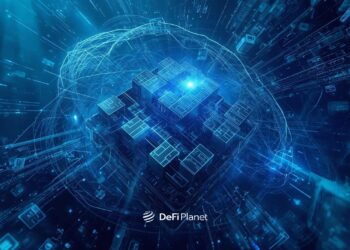Sending money from one country to another quickly and safely is important for global trade, remittances, and investing. For decades, SWIFT (Society for Worldwide Interbank Financial Telecommunication) has been the dominant player in this field.
But now, blockchain technology has brought in new players like Ripple that wants to change the game by making cross-border payments faster, cheaper, and more transparent.
This article examines the rivalry between SWIFT and Ripple, exploring how both systems work, comparing their approaches to handling cross-border payments, and assessing their potential to dominate the future of global payments.
The Dominance of SWIFT

SWIFT, created and deployed in 1973, is a secure system designed to enable banks to handle international transactions. Before SWIFT, cross-border transactions were slow and expensive, often managed with telex machines and manual processes. SWIFT changed that by introducing a reliable network connecting banks worldwide.
SWIFT has grown a lot over the years. It started with 239 banks in 15 countries and has expanded to include many more banks and financial institutions globally. Now, SWIFT operates one of the world’s largest financial networks, spanning across more than 200 countries and territories.
The scale of SWIFT’s network is impressive, connecting over 11,000 financial institutions worldwide. They include banks, securities brokers, clearinghouses, asset management firms, and corporate clients. With a vast membership comprising leading global institutions, SWIFT manages a significant share of international financial transactions worldwide. It is essentially the standard for international financial communications
How SWIFT Works
SWIFT operates as a vast messaging network for financial institutions worldwide. It doesn’t actually move money; it only transmits secure messages between banks. The actual movement of funds occurs through a network of correspondent banking relationships.
When a customer initiates an international money transfer, their bank creates a SWIFT message with codes that help banks understand and handle transactions quickly, including who’s sending money, how much, in what currency, and why. This message then travels through the SWIFT network to reach the recipient’s bank.

The journey of a SWIFT transfer often involves multiple intermediary banks, especially when the sending and receiving banks don’t have a direct relationship. Each intermediary processes the SWIFT message, deducts its handling fees, and forwards the remaining balance to the next bank in the chain. This step-by-step process continues until the funds reach the final destination.
One of SWIFT’s defining characteristics is its reliance on this network of correspondent banks. While this system ensures broad global coverage, it also introduces delays and additional costs. The entire process typically takes one to five business days, depending on the number of intermediaries involved and each bank’s processing efficiency.
The Emergence of Ripple

Ripple introduced its blockchain-based payment protocol in 2012 with the aim of revolutionizing global money transfers. Its vision: to streamline international payments, making them faster, cheaper, and more efficient compared to traditional banks. The protocol addresses issues like slow and costly cross-border transactions prevalent in traditional banking systems.
The company seems to be making serious headway with this mission. It has teamed up with major banks and financial institutions worldwide to expand its technology into their payment systems. For instance, Santander in Europe, U.S.’s American Express, Japanese giant, SBI Holdings, and MoneyGram, among others are big clients and partners of Ripple.
As you can see from the list above, Ripple’s technology is used in various finance sub-sectors, asides international payments. It used to speed up payments in trade finance, helping importers and exporters with quicker settlements and fewer fees. Plus, Ripple’s tech is becoming popular in digital payments, giving businesses and people around the world a reliable and efficient way to send and receive money.
How Ripple Works
In contrast to SWIFT’s messaging-based system, Ripple offers a more direct approach to cross-border payments using blockchain technology. At the heart of Ripple’s system is the XRP Ledger (XRPL), a decentralized blockchain network, and XRP, a digital currency that serves as a bridge between different fiat currencies.
Ripple operates through a network of validators responsible for confirming transactions and maintaining the integrity of the system. Unlike traditional blockchain networks, Ripple’s consensus mechanism doesn’t rely on mining, making it more energy-efficient and faster.

When a payment is initiated on the Ripple network, the system’s algorithm determines the most efficient path for the transfer. This path may involve direct transfer between Ripple-connected institutions or could include currency exchanges facilitated by liquidity providers. These providers, which include banks and specialized crypto trading firms, help seamlessly convert one currency to another when necessary.
A key feature of Ripple’s operation is its use of XRP as a bridge currency. This allows for quick and efficient conversion between different fiat currencies, eliminating the need for multiple currency pairs and reducing the complexity of cross-border transactions.
Ripple vs. SWIFT: The Comparative Analysis
The most notable operational difference between Ripple and SWIFT lies in the settlement time. While SWIFT transfers can take days due to the involvement of multiple intermediaries, Ripple settles transactions in near real-time, typically within seconds. This rapid settlement is particularly advantageous for financial institutions handling large volumes of international transfers.
Another significant difference is the way each system handles transaction fees. In the SWIFT network, each intermediary bank deducts its fees from the transfer amount, potentially reducing the final sum received. Ripple, on the other hand, offers more transparent and generally lower fees due to its more direct transfer process and the elimination of multiple intermediaries.
While SWIFT relies on its extensive network of established financial institutions, Ripple’s operation opens up possibilities for a wider range of participants, including both traditional banks and newer fintech companies. This inclusivity, combined with Ripple’s flexibility in handling different types of currencies (including cryptocurrencies), represents a bridge between traditional finance and the emerging world of digital assets.
Ripple edges out SWIFT in terms of transaction speed, efficiency, and security. However, in terms of regulatory compliance, SWIFT is essentially the standard. Plus, there’s regulatory and legal battles in different places for Ripple, especially on the status of XRP—whether it is a security or not.
Also, the ups and downs of cryptocurrency markets is another concern. Since Ripple relies on XRP as a bridge currency, its success is closely tied to how well cryptocurrencies do overall. Unbridled changes in XRP’s price can impact Ripple’s partnerships and investors’ confidence.

Future Prospects and Innovations
The competition between SWIFT and Ripple represents a broader shift in the financial industry towards faster, more efficient cross-border payment solutions. While SWIFT benefits from its established position and widespread adoption, Ripple’s innovative approach offers significant advantages in terms of speed and cost.
SWIFT is not standing still, however. The organization is developing new technologies like SWIFT gpi (gpi = Global Payments Innovation) ,which it introduce in 2017, to improve transaction speed and transparency. They are exploring blockchain and distributed ledger technologies to enhance their offerings further.
Meanwhile, Ripple continues to expand its network and refine its technology. The company is focusing on key remittance corridors, particularly in emerging markets where traditional banking relationships may be limited. Ripple is also working on improving its compliance frameworks to address regulatory concerns in various jurisdictions.
Final Thoughts
The future of cross-border payments will likely involve a combination of traditional and blockchain-based solutions. Financial institutions may adopt hybrid approaches, leveraging the strengths of both SWIFT and Ripple-like technologies to meet diverse customer needs and regulatory requirements.
Notably, Ripple isn’t alone in this space either. Other blockchain payment systems like Stellar and IBM’s Blockchain World Wire are also making waves. They’re using new tech and partnerships to make cross-border payments smoother too. This puts extra pressure on Ripple to stay ahead and keep coming up with new ideas and working with key partners in the market.
As the landscape evolves, factors such as regulatory developments, technological advancements, and shifts in market demand will play crucial roles in determining the balance between traditional and innovative payment systems.
Disclaimer: This article is intended solely for informational purposes and should not be considered trading or investment advice. Nothing herein should be construed as financial, legal, or tax advice. Trading or investing in cryptocurrencies carries a considerable risk of financial loss. Always conduct due diligence.
If you would like to read more articles (news reports, market analyses) like this, visit DeFi Planet and follow us on Twitter, LinkedIn, Facebook, Instagram, and CoinMarketCap Community.
“Take control of your crypto portfolio with MARKETS PRO, DeFi Planet’s suite of analytics tools.”





















